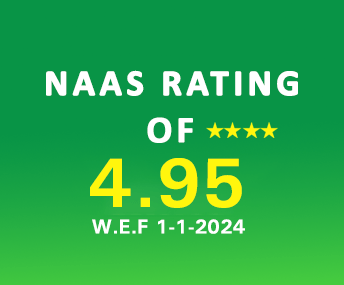Title: Assessment of Chrysanthemum (Dendranthema grandiflorum) Varieties for Yield and Productivity in Salem District
By: P S Kavitha, A Sudha and N Sriram
URL Link:
DOI:
-
Abstract
Chrysanthemum (Dendranthema grandiflorum) is a member of the family Asteraceae, mainly grown for cut flower and loose flower for garland making, general decoration, hair adornments and religious function. The major varieties grown by the farmers of Salem district in Tamil Nadu are local, chandini, karnool, uppili etc. Technical problems faced by the farmers were low yield, poor quality flowers, high cost of planting materials and high cost of cultivation. On farm trial was conducted with CO 1 variety released by Tamil Nadu Agricultural University, Coimbatore and the locally adopted variety. Five
chrysanthemum growing farmers were selected at different locations of pannapatti village with an area of 2ha each for the trial. RBD was laid out with three varieties as treatments and seven replications. CO1 performed well and recorded highest yield (11.2 t/ha) than the local variety (5.8 t/ha). The major
attribute for increase in yield is big flower size (4.0-4.5 cm dia) in CO 1 than the local varieties (2.8- 3.4 cm). Besides, CO1 gave ratoon crop that led to dramatic reduction in cost of cultivation.CO1 variety with big flower size and increase in yield than the local varieties fetched higher price in market. There is a need to standardize the optimum dose of nutrients particularly the integrated nutrient management for improving the soil structure, physico-chemical properties and flower yield for CO 1 variety. - Download Full Paper
Title: Assessment of Improved Variety of Tuberose (Polianthes tuberosa) Prajwal for Yield and Economics in Western Parts of Chittoor District of Andhra Pradesh
By: Pedda Nagi Reddy Pocha, M Mallikarjun, G Nirmala Devi and M Reddi Kumar
URL Link:
DOI:
-
Abstract
The present study was conducted during 2015-2018 for three years to assess the performance of high yielding tuberose variety Prajwal for western parts of Chittoor district of Andhra Pradesh. The improved variety Prajwal was plated along with local variety Hyderabad single as check in 0.2ha each in the fields
of five farmers at Ayyavaripalli and Chinnagangulavaripalli villages during June 2015 and continued for three years. The results revealed that among the two varieties Prajwal recorded significantly higher number of spikes per plant (2.86 no./plant), number of flowers per spike (46.9 no./spike), flowering
duration of spike (16.55d), spike length (105.88cm), flower weight per spike (55.31g), 100 flower weight (91.80g), flower yield per plant (165g) and flower yield per hectare (17.7t/ha). The economic parameters viz., benefit cost ratio (2.22), marginal benefit cost ratio (26.5) and relative economic efficiency
(12.92) were recorded more in Prajwal than Hyderabad single. The Prajwal variety showed superiority over Hyderabad single and found suitable for western parts of Chittoor district of Andhra Pradesh. - Download Full Paper






